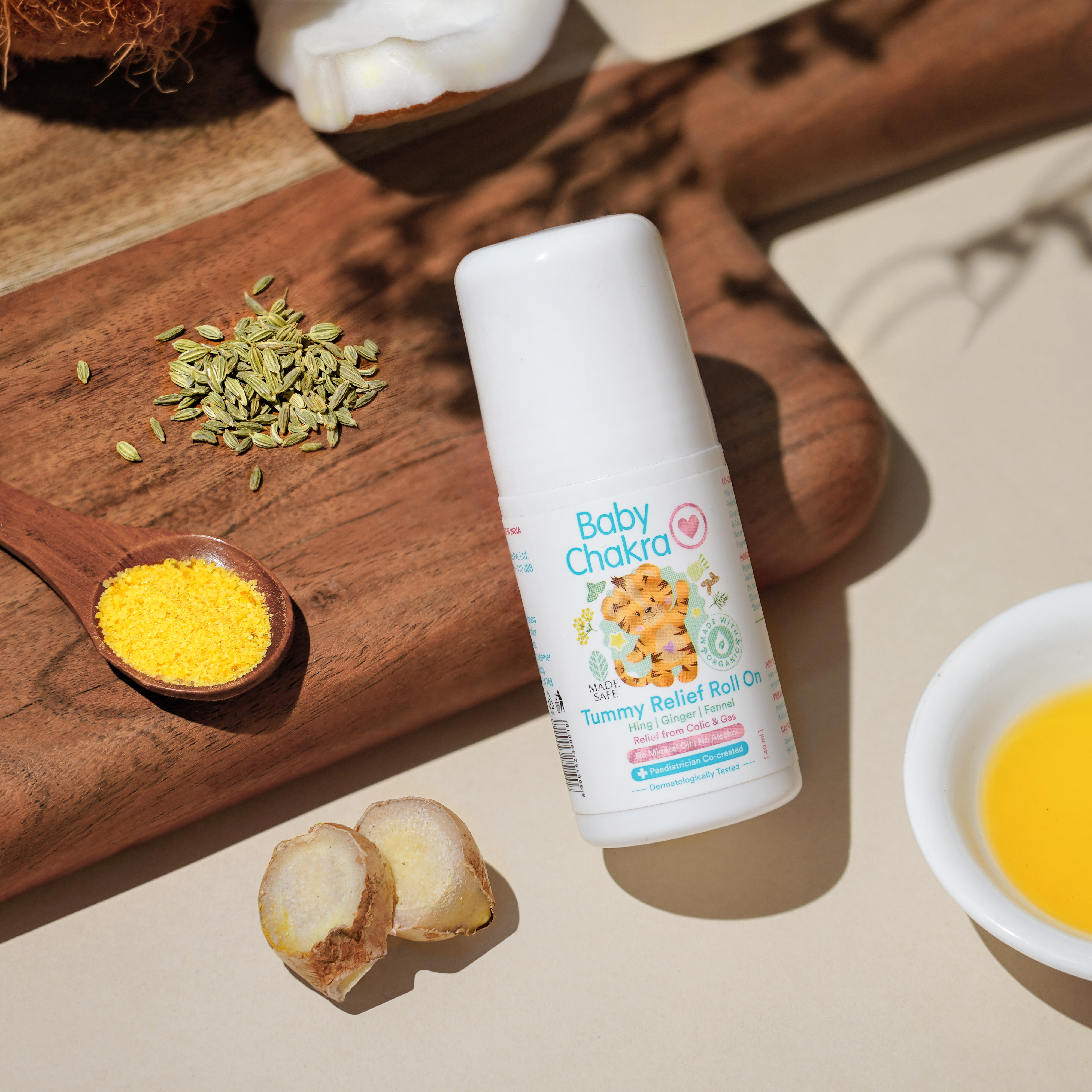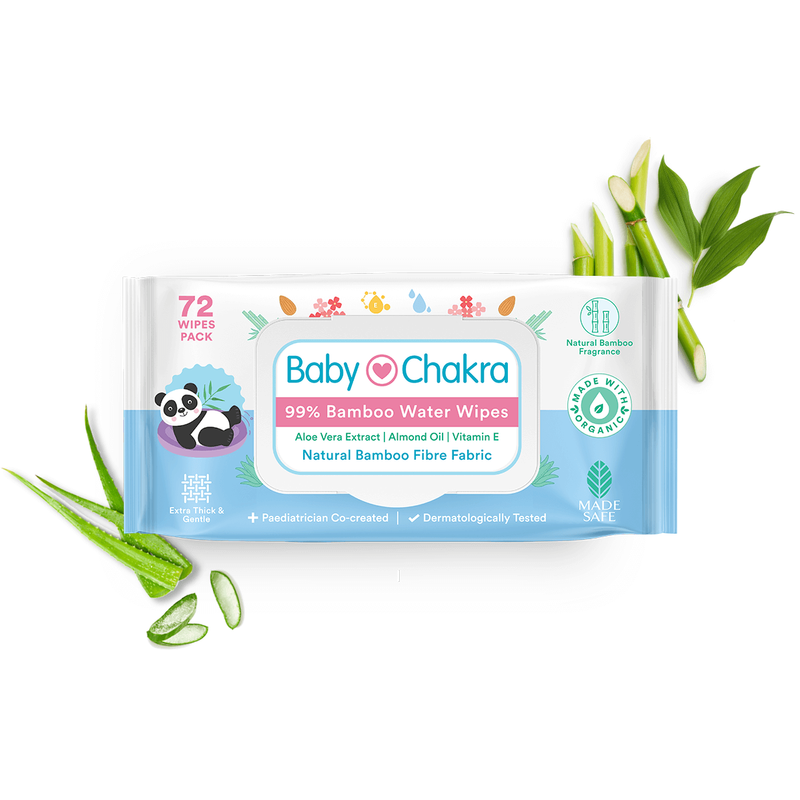
Vomiting In Babies: 5 Possible Causes And Treatment Methods
13 Mar 2023 | 7 min Read
Sudeshna Chakravarti
Author | 799 Articles
There may be several causes for vomiting in babies, ranging from stomach flu to gastrointestinal anomalies and indigestion. Although occasional vomiting in your baby is not a cause for concern, persistent or severe vomiting requires prompt medical attention. This is crucial to help diagnose any underlying health condition and avoid dehydration in your little one.
So if you are wondering how to stop vomiting in babies and when to seek immediate medical help, fret not, as we have got you covered with all the essential answers. Read on to find out more about the possible causes of vomiting in your baby, and helpful remedial methods that work to relieve their discomfort.
5 Common Causes Of Vomiting In Babies
Stomach Flu
Stomach flu, also referred to as tummy bug, stomach bug, or viral gastroenteritis is an infection of the stomach that can cause vomiting in your little one. In addition to vomiting, stomach bug may also cause fever, diarrhoea, and tummy pain in your baby. If your baby has stomach flu, they may have persistent vomiting for 2-3 days and need immediate medical attention.
Food Allergies
Intolerance or allergy to certain foods can also cause vomiting in your baby. If your little one is breastfeeding, then vomiting could occur due to a certain food item present in your diet. But if your baby is bottle-fed, the kind of formula used can lead to this condition.
Regardless, if your baby is vomiting persistently between minutes to hours after feeding, you should consult their doctor to check for possible allergens that are worsening their condition, and steer clear of them.
Acid Reflux
As you know, your baby’s oesphagus has still not matured, and in some cases, this may cause the milk to back up into their food pipe after feeding. This may also cause the milk to come out of your baby’s nose and mouth, and is commonly referred to as posseting or spitting up. However, you don’t have to worry much about this condition, as it usually resolves with time, or when your little one is introduced to solid foods.
Overfeeding Or Overeating
If your baby is bottle-fed or breastfed, they may vomit if they are overfed. Since certain kinds of baby bottles have large holes, it can sometimes lead to overfeeding. Hence, monitor the amount of formula in your baby’s bottle to ensure that they are not overeating.
Food Poisoning
Food poisoning may happen in bottle-feeding and weaning babies. This condition is usually caused due to stale food, unsterilised bottles, or food and water contaminated with salmonella and E.coli bacteria. Food poisoning can lead to frequent vomiting and diarrhoea in your little one and require immediate medical attention.
Home Remedies To Stop Vomiting In Babies
The main goal of these remedies is to prevent dehydration in your little one due to electrolyte loss while vomiting. You may also discuss these remedies with your baby’s paediatrician as they may offer additional insights based on your baby’s age, symptoms, and weight.
The home remedies to stop vomiting and prevent dehydration in your little one includes:
- For breastfed babies: Make sure to feed your baby more often to maintain hydration. You can return to the normal feeding schedule once your baby has stopped vomiting.
- For bottle-fed babies: You can give your little one oral rehydration solution (ORS) every 10-15 minutes if the vomiting is severe, or after 2-3 hours. You can purchase this rehydration solution at a pharmacy, but make sure to consult your baby’s doctor about the dosage. The dosage may vary depending on your little one’s age, diet, and health condition.
- For weaning babies: Keep offering them ORS solution after every hour. You can gradually put them back to their solid diet after their vomiting lessens.
In case your baby is experiencing stomach pain in addition to vomiting, you can try applying a natural relief roll-on on their tummy to alleviate the cramps. You can opt for BabyChakra’s tummy relief roll-on, which is made with a potent combination of botanical ingredients like hing and fennel seeds that relieve tummy aches and cramps, and reduce discomforts like bloating and acidity.
Treatment Methods To Stop Vomiting In Babies
After examining your little one’s condition and determining the cause of vomiting, your doctor may recommend the following prevent dehydration and discomfort in your baby.
- If your baby has a stomach bug or a bacterial infection, then the doctor will prescribe antibiotics to alleviate vomiting.
- If your little one has severe dehydration and is refusing to take fluids, the doctor may administer intravenous fluids (IVs) to replenish electrolytes in their body.
- The doctor may also recommend rehydration solutions if your baby can drink without vomiting again.
When To Feed Your Baby After Vomiting Stops?
These tips will help you decide when to feed your baby once their vomiting stops.
- Give your baby a small amount of breast milk and observe if they vomit again.
- Try offering your baby a bottle after they have thrown up. If they are ready to eat, feed them right away.
- If your little one resists eating after vomiting, wait for a while, and try to feed them again.
Feeding fluids and breast milk can help soothe nausea in your little one and soothe the irritation in their throat. You can also try offering them water in a spoon or a bottle to maintain hydration. Even if your baby resists, keep trying after frequent intervals.
When To Call Your Doctor?
Knowing when to seek immediate medical care can help prevent your baby’s condition from worsening. You should call your doctor right away in the following situations.
- If your baby’s vomit is green or greenish-yellow in colour. This may indicate an internal obstruction and require immediate medical attention.
- If your baby continues to vomit even after a day.
- If your baby is refusing to consume breast milk or eat even after a few hours.
- If you notice signs of dehydration in your baby, including sunken eyes and dry mouth.
- If your baby is irritated and crying for a long time and has a fever.
Conclusion
We hope to have answered all your queries on how to stop vomiting in babies. As discussed, make sure to keep your little one hydrated by offering them fluids, such as breast milk or rehydration solutions to relieve their nausea and discomfort. However, if you notice severe symptoms along with vomiting, such as high fever, signs of dehydration, or diarrhoea, make sure to seek immediate medical help by contacting your baby’s paediatrician.
Recommended Baby Care Products:
These products are perfect for fulfilling your newborn’s skin and hair needs. Check them out!
Moisturising Creamy Bathing Bar
Also Read:
How to clean your baby’s ears: We have listed essential tips that you should keep in mind while cleaning your little one’s ears at home.
Baby lip blisters: Wondering how to care for your little one’s lip blisters? Here are a few tips that can help.
Best baby soap: Here are all the factors that you should consider before purchasing a soap for your newborn.
Cover Image Credit: Freepik.com
A


Related Topics for you
Suggestions offered by doctors on BabyChakra are of advisory nature i.e., for educational and informational purposes only. Content posted on, created for, or compiled by BabyChakra is not intended or designed to replace your doctor's independent judgment about any symptom, condition, or the appropriateness or risks of a procedure or treatment for a given person.




